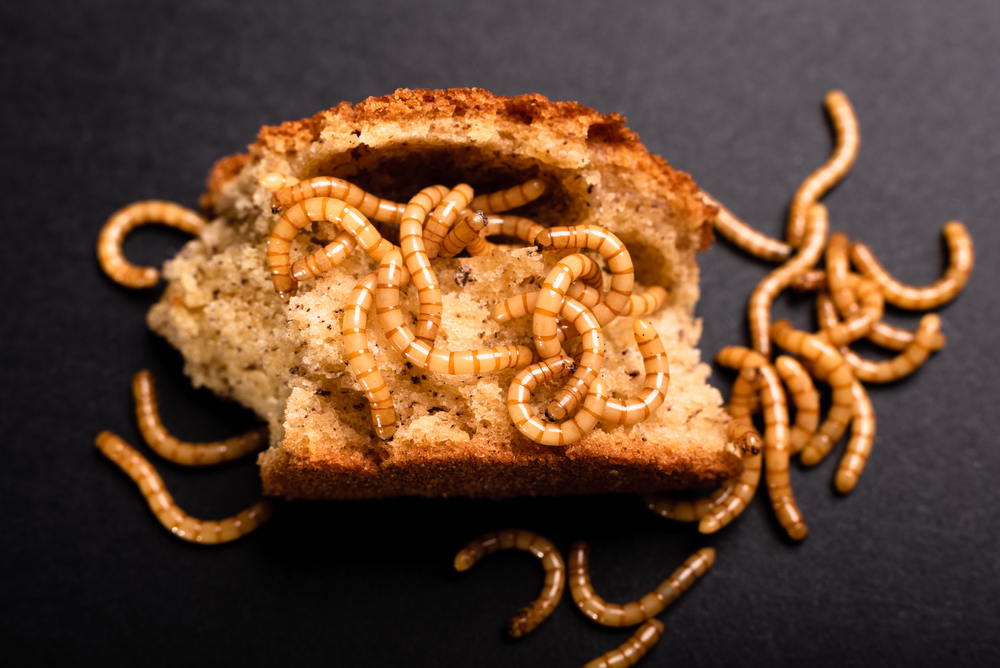Do insects that were bred on a substrate containing gluten also contain gluten? And what about lactoproteins? Yes, says a study conducted by Wageningen Food Safety Research (WFSR). The chance that eating these insects will spark an allergic reaction is, however, very small.
‘Insect breeders currently use substrates that are also used to feed other animals. Chicken feed, for example,’ says researcher Elise Hoek (WFSR). ‘However, we aim to breed insects on residual streams, and that sparks new food safety issues.’
Gastrointestinal tract
For example, the question of whether allergens contained in such residual streams can eventually be found in the insects. ‘Insects grow on a substrate, which they consume. When a residual stream is used, the substrate may contain wheat or milk. Once harvested, the insects’ gastrointestinal tract still contains substrate on which they were grown’, Hoek clarifies.
A group of WFSR researchers – among whom is allergen expert Nathalie Smits – investigated how many allergens the substrate contains, how much thereof is absorbed by the insect, and whether this may cause allergic reactions. A key difference between insects and other animals bred for human consumption is that the gastrointestinal tract of animals is usually removed, and only the meat is consumed. In contrast, when insects are used, the whole animal is processed. Hoek: ‘And that includes whatever remains inside its digestive system. We conducted studies where we had insect larvae fast for several days after harvesting them, to see if, and if so, how fast, the ingested allergens are naturally expelled.’
French fries
In this study, the researchers investigated five different residual streams to determine whether they contained lactoproteins and wheat. Subsequently, they bred two different types of insects on the different residual streams. They bred mealworms, and black soldier flies on both supermarket mix and wheat semolina. Furthermore, the black soldier fly was bred on supermarket mix, chicken feed, catering waste and French fries. In some experiments, the harvested insects were made to fast for up to seven days.
All residual streams, except for the French fries, contained gluten. Only the catering waste and supermarket mix contained lactoproteins. However, the allergens were barely present in the insects themselves.
Low concentrations
Smit, Hoek and their colleagues concluded there is no cause for concern. ‘The allergen concentrations are so low that we do not expect them to cause allergic reactions. Having the insects fast for extended periods is not needed as the allergen levels remain well below the threshold for serious allergic reactions. Moreover, whole insects are rarely consumed in the Western world. The insects are processed in other products, which means that the amount ingested is very small.’

 Insects can feed on residual streams. Photo Shutterstock
Insects can feed on residual streams. Photo Shutterstock 

